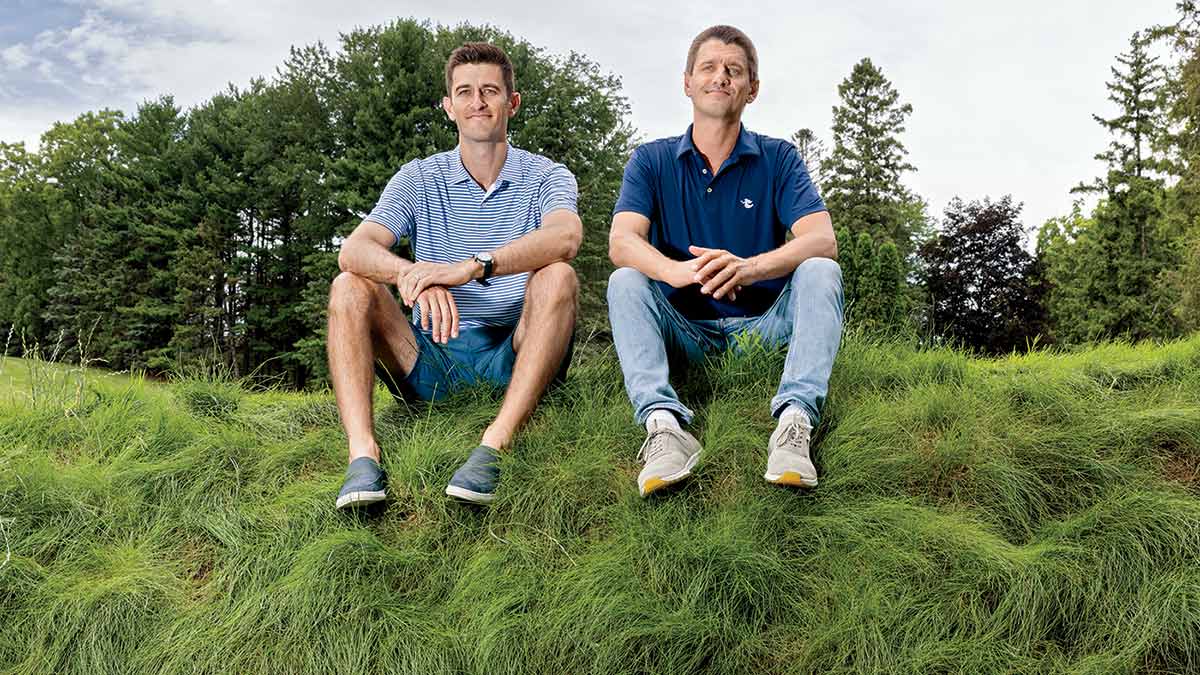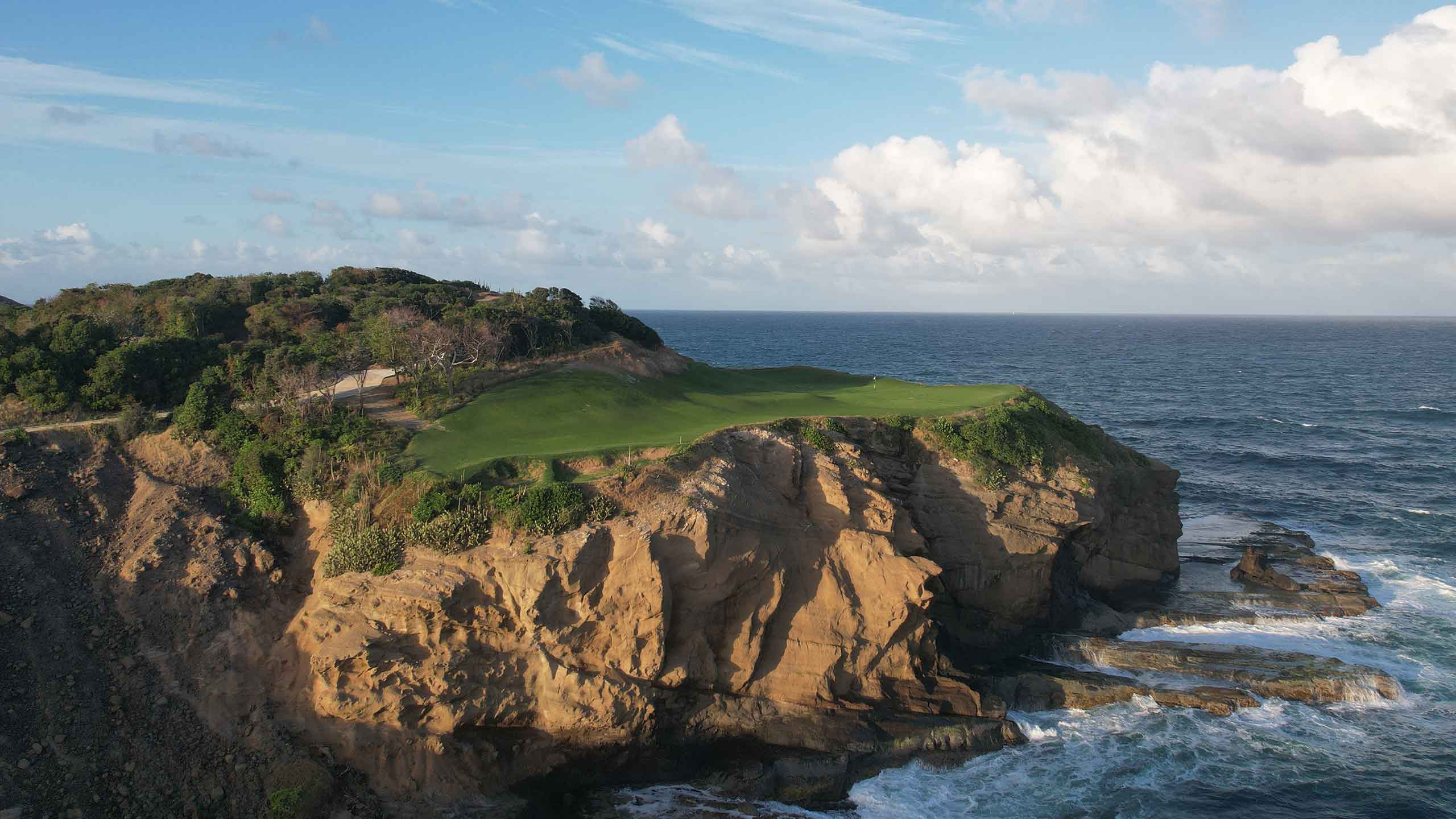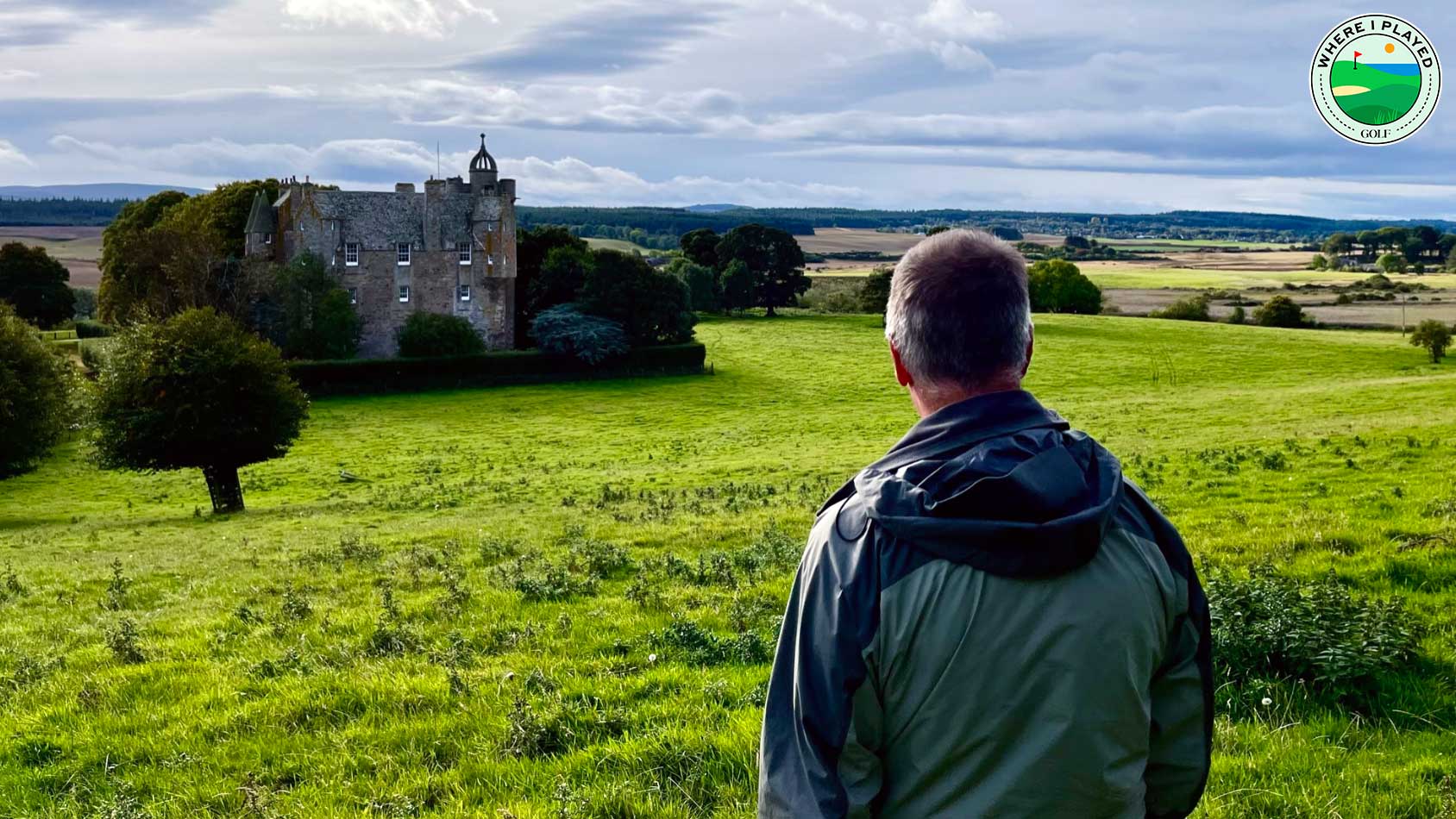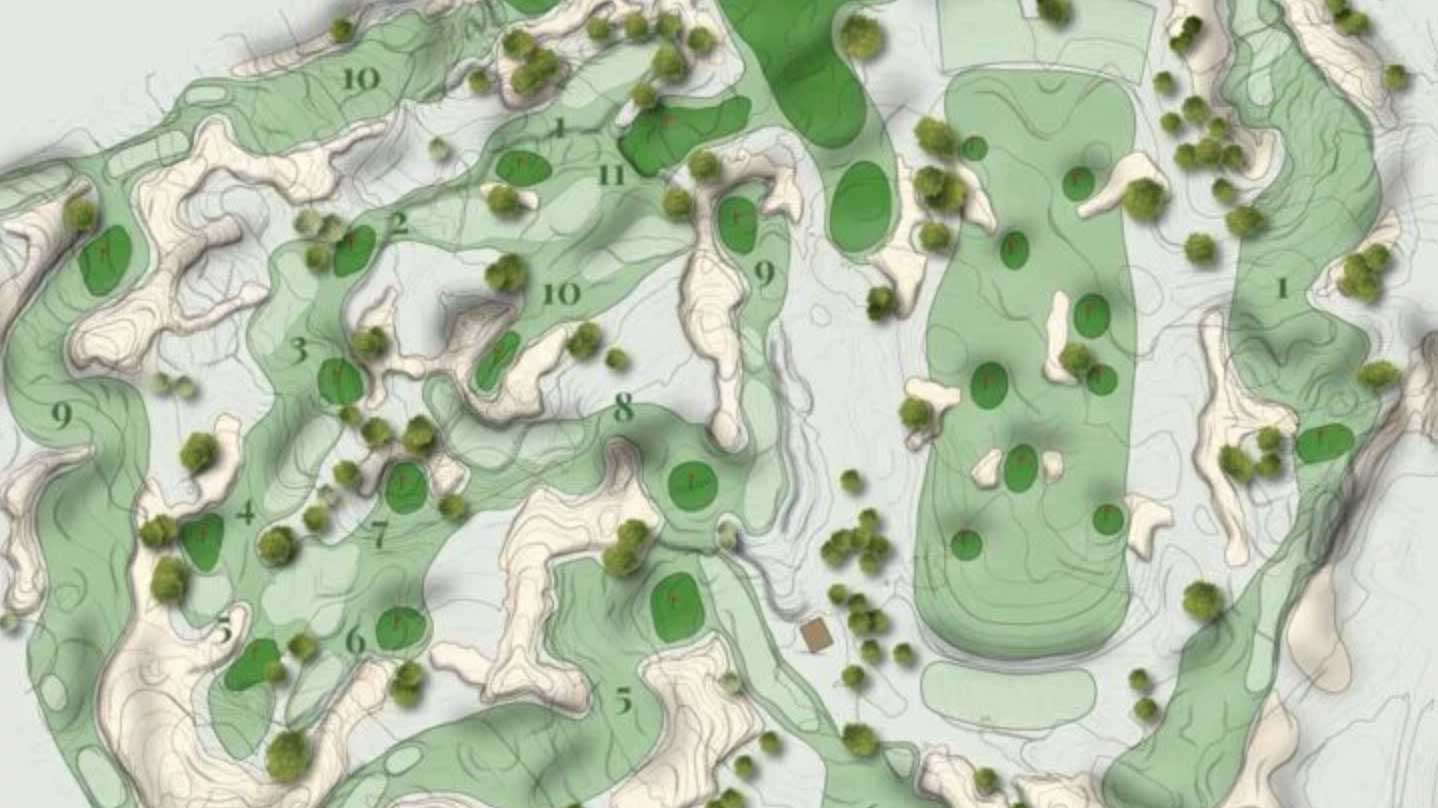‘Our model is Sand Hills’: Colorado golf about to get boost from Keiser family’s latest find
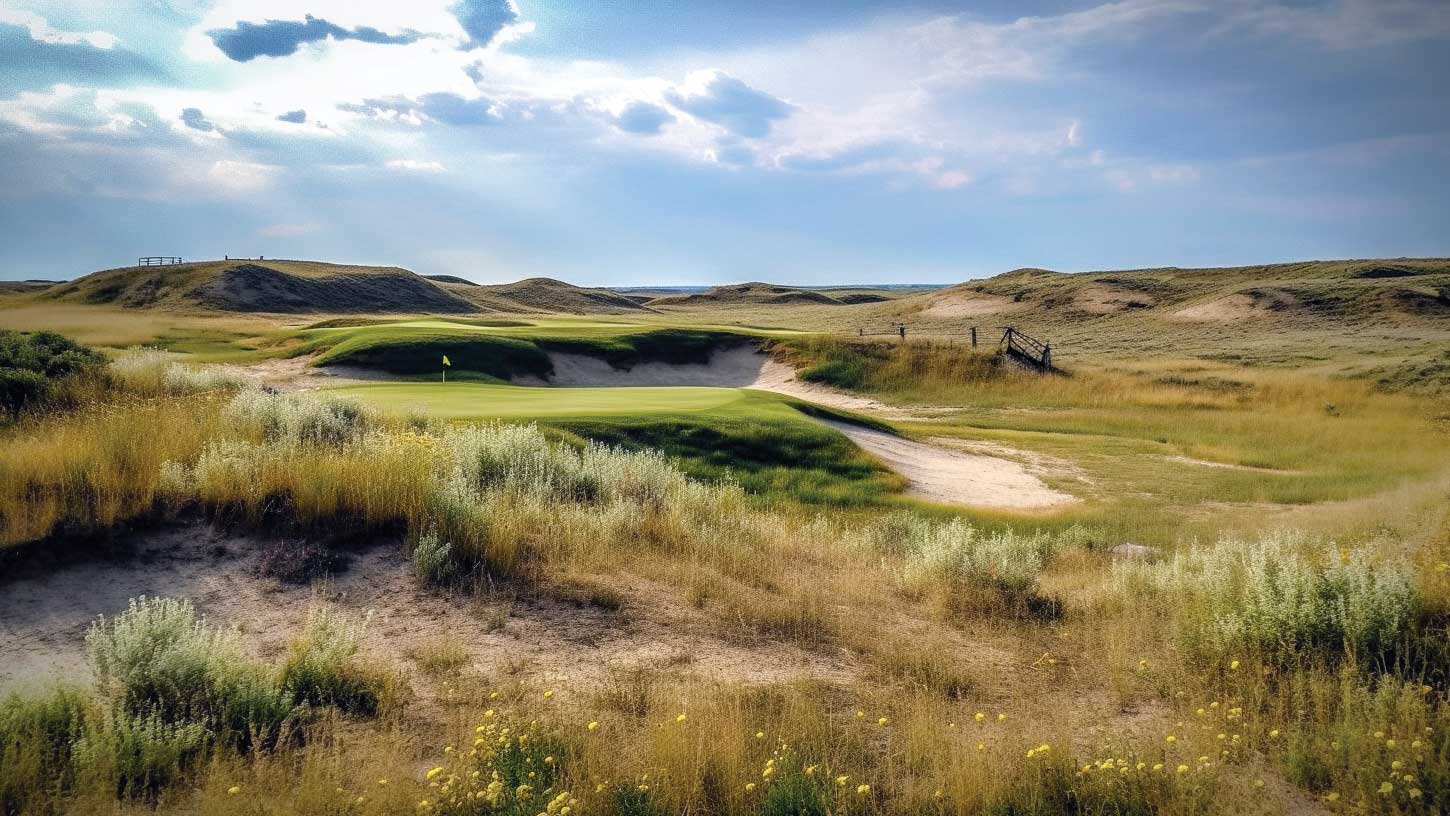
An artistic rendering of how Rodeo Dunes might look. This site is 35 minutes from the Denver airport.
Rodeo Dunes
One sunny winter day in 2019, along a lonely road on the eastern plains of Colorado, the golf course developer Michael Keiser (the son, not the father of the same name) clambered from his car and climbed over a barbed wire fence onto a rollicking expanse of ranch land.
Keiser was familiar with the site from Google Maps. But this was his first brush with it in person. It was even more dramatic than it looked online.
The treeless terrain in the town of Roggen, roughly 35 minutes from the Denver airport, heaved with sand dunes, some rising as high as 85 feet, framed in the distance by the snow-capped Rockies.
Keiser was impressed. He was also trespassing, which he concedes, “probably wasn’t the best idea.”
As he trudged along, taking in the landscape, a ranch hand flagged him down from a few hundred yards away.
“There was nothing else to do,” Keiser says. “I walked straight up to him and said, ‘Hi, do you play golf?’”
The man chuckled and allowed that he sometimes did, before escorting Keiser off the property and advising him not to show up unannounced again.
Keiser’s day had ended early with the easy work behind him. He’d identified great land for golf. The hard part, he says, was what came next: convincing the owner of that land, an 85-year-old cattle rancher and rodeo operator “that he should let me build a course in his backyard.”
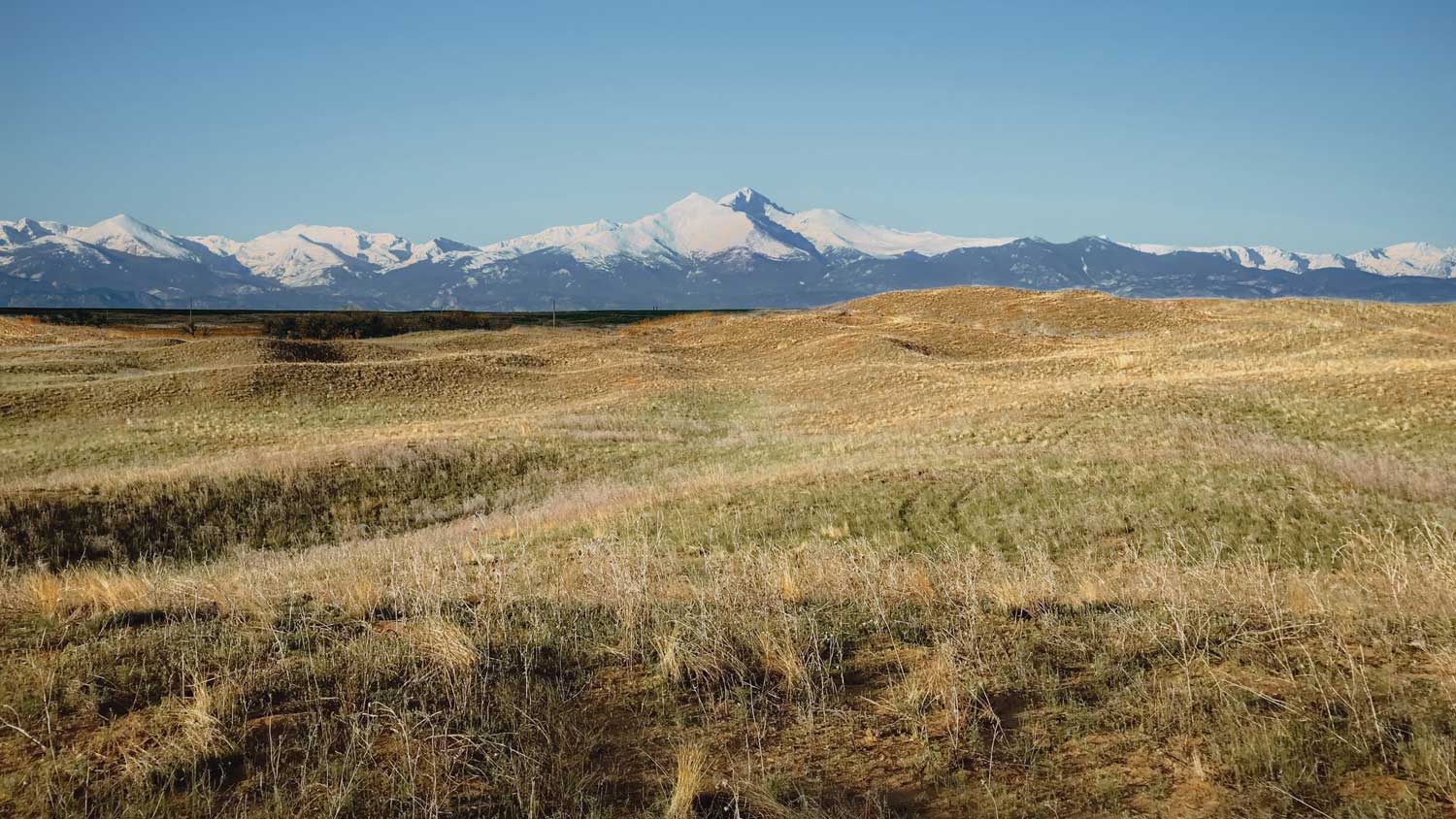
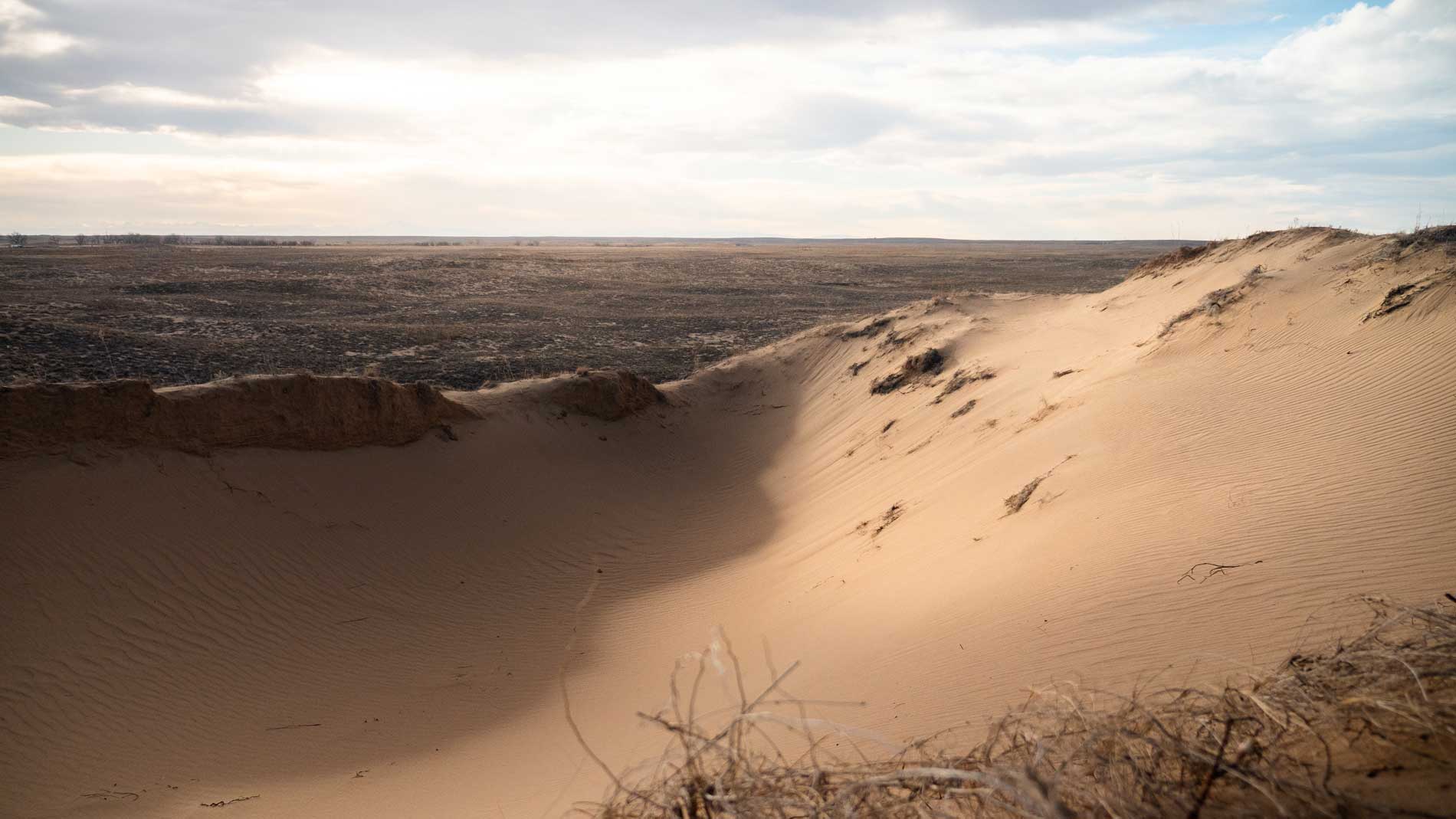
Four years later, after countless conversations and negotiations, that part has been handled, too. All that remains is to get on with the job of building Rodeo Dunes, the latest project for Keiser and his brother, Chris, the sibling co-developers of Sand Valley, in Wisconsin, and the sons of Bandon Dunes founder, Mike Keiser.
Like every destination in the Keiser family portfolio, which also includes Cabot Cape Breton, in Nova Scotia, Rodeo Dunes will place golf front and center. The difference is that golf is all that there will be, at least at the outset.
The Keisers have acquired 2,000 acres of dunesy land, with room enough, Michael says, for six courses, and water rights to support that many, too. At this stage, routings have been finalized for two courses, one by Bill Coore and Ben Crenshaw. The other is the first solo design by longtime Coore/Crenshaw associate Jim Craig.
Craig’s course is expected to be completed first, with construction starting this summer and an opening slated for 2025. The Coore/Crenshaw course will follow, with a short course and a putting course pegged to open shortly after that.
In the early going, amenities will consist of little more than a shipping container or a single-wide trailer by the first tee. Any amenities, if added later, will abide by the Keiser family’s low-impact philosophy.

“Our model is Sand Hills,” Keiser says, referring to the famed private club in Nebraska that many see as a benchmark of modern-minimalist golf. “Except we want to be public, and with more than one course. Everything will be pretty spartan. The goal is to create raw, pure golf, with everything else stripped away.”
That light-handed approach, Keiser says, not only fit a landscape that requires minimal shaping. It also fit the interests of the octogenarian rancher and rodeo operator Mike Cervi, who lives on his property, where his sons also have homes, and was bent on preserving its unspoiled open spaces.
“He has zero desire to see his land turned into track housing or strip malls,” Keiser says. “He wants to keep it as a working ranch. A lot of our discussions were about how a low-impact and sustainable set of courses would help ensure that that remains the case for as long as possible.”
In recent years, Denver has ranked among the fastest-growing metropolitan areas in the United States. But Keiser says that booming demographics did not drive the decision to build in Colorado. He says the move was dictated solely by the site, which he describes as “the best I’ve ever seen.”
“I don’t think I’ll ever get another crack at something like this in my career,” Keiser says. “This is it.”
After acquiring the land, Keiser, an armchair architect himself, roughed out a routing and showed it to his friend, Jim Craig, asking for his informal input.
“I wasn’t looking to hire him, and he wasn’t looking for a job,” Keiser says. “I was just curious to hear his thoughts.”
Craig made a few suggestions, which led to some revisions, which gave way to other nips and tucks. Before long, Craig was making regular trips from his home in Texas to walk the site and dream up more ideas, which he layered over the evolving blueprint.
“It was one of those deals where you could start almost anywhere and go anywhere from there,” Craig says. “The land is good all over.”
As part of his revisions, Craig steered the routing deeper into the most dramatic dunes, while working in and out of the rumpled folds to ramp up intrigue and variety.
“I just tried to go everywhere that was interesting,” Craig says.
It got to the point where so little of Keiser’s original draft remained that Keiser asked Craig if he would take the job. After all, the work was his.
“I’m honored and excited,” Craig says. “I think we’re going to take people on a really fun walk.”
Golf is played year-round in the Denver area, and Keiser says that will be the case at Rodeo Dunes, though he expects that prime season for destination travelers will run roughly from April through November. There are hotels in nearby towns along Interstate 76, which runs between Denver and Roggen.
Rodeo Dunes is offering a limited number of Founder memberships. You can find more information here.

